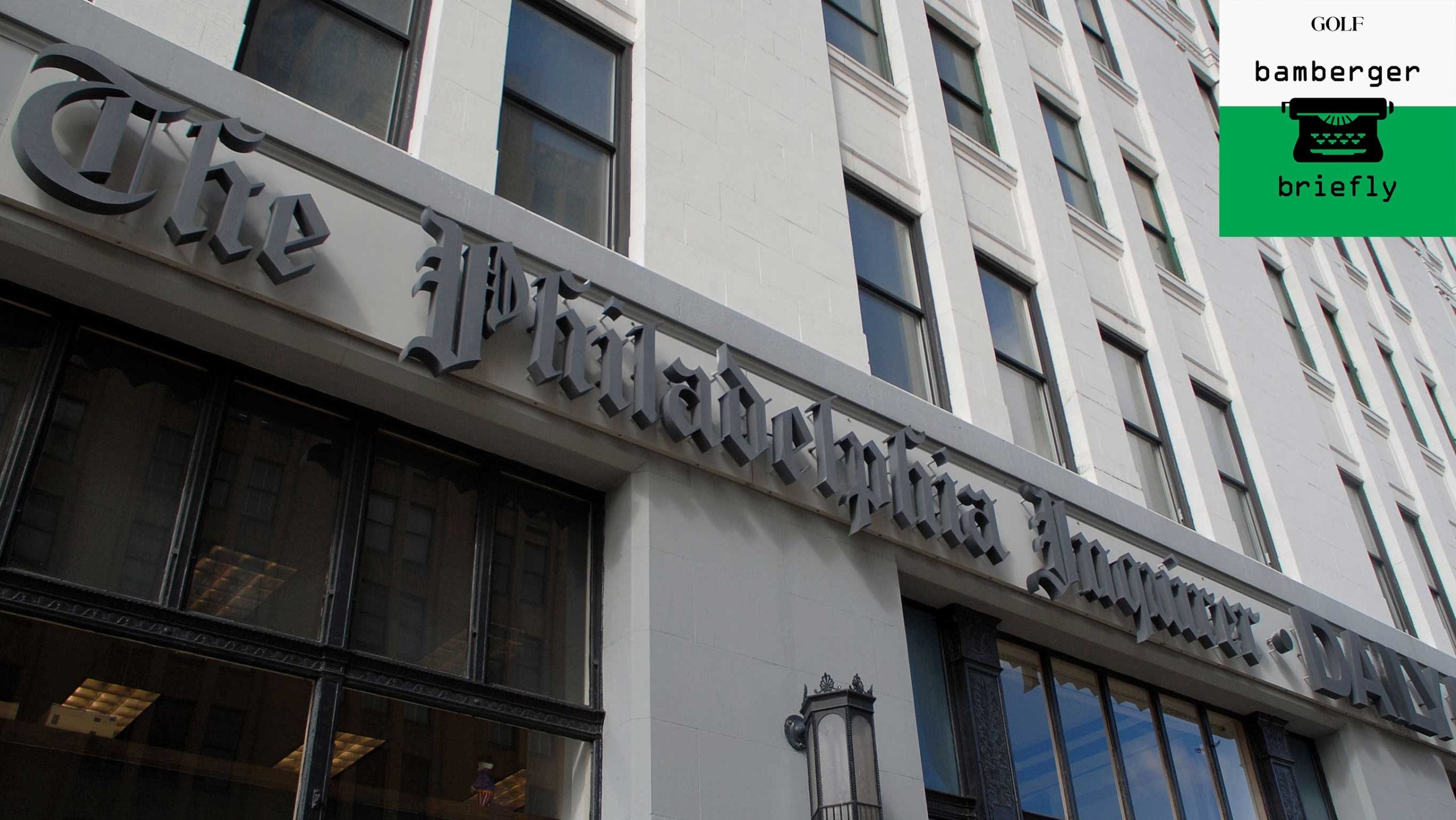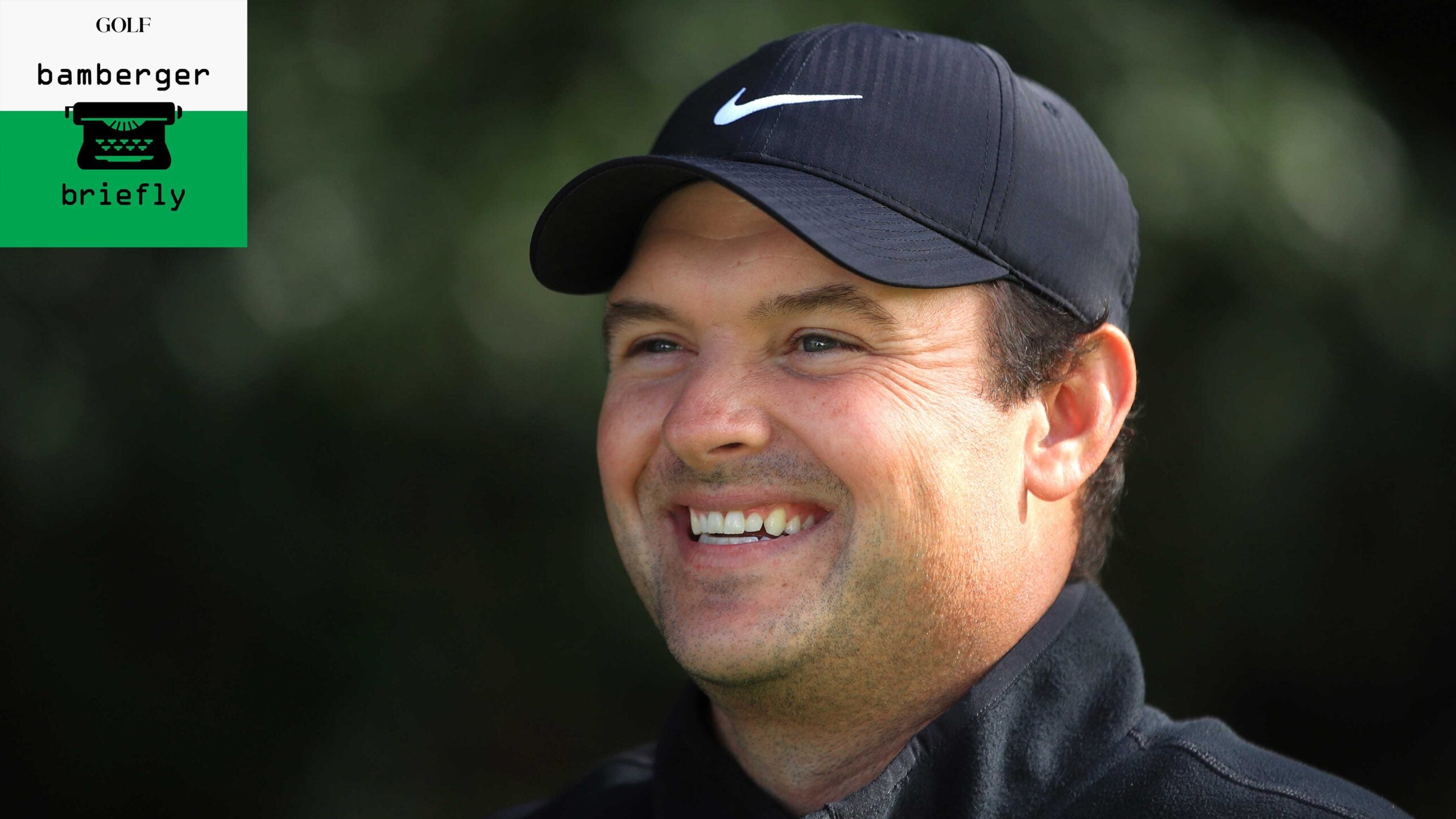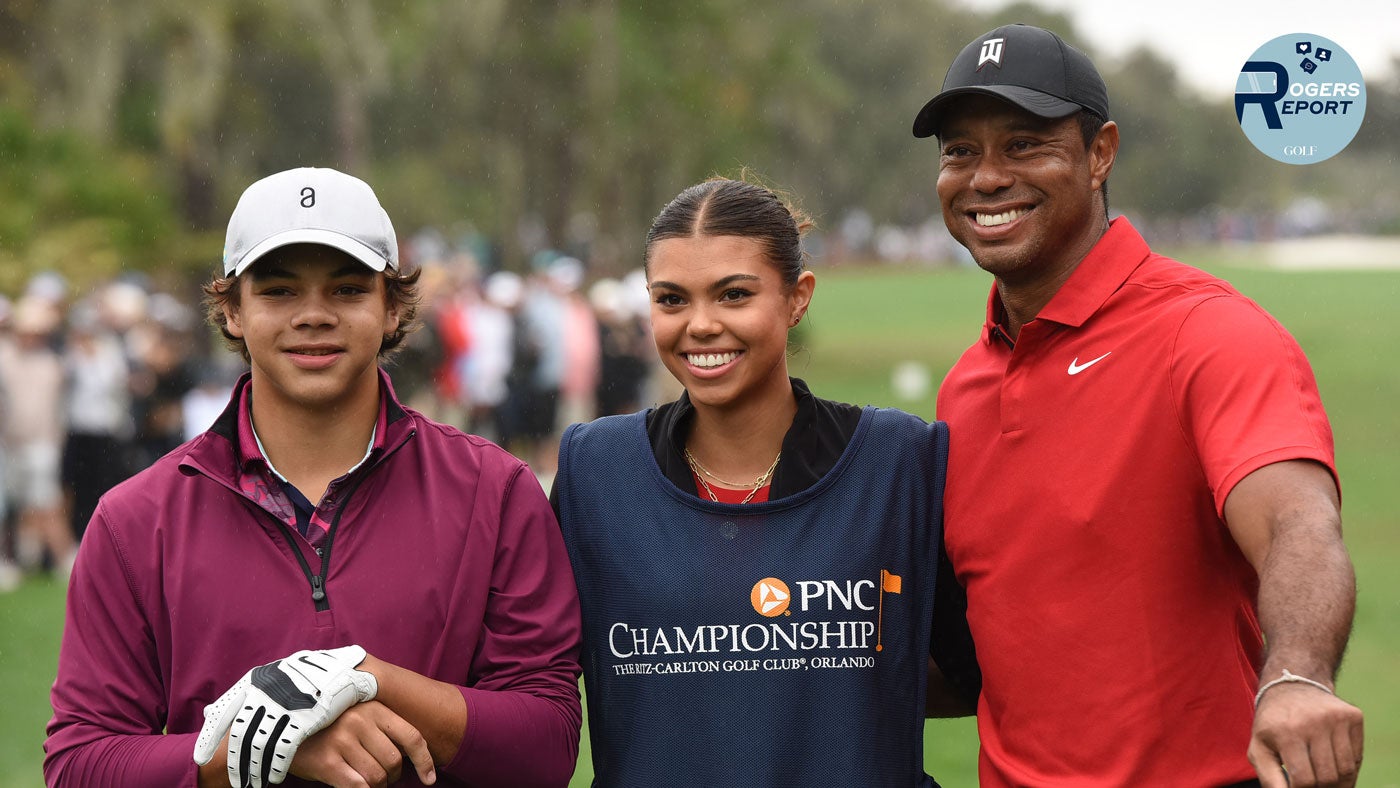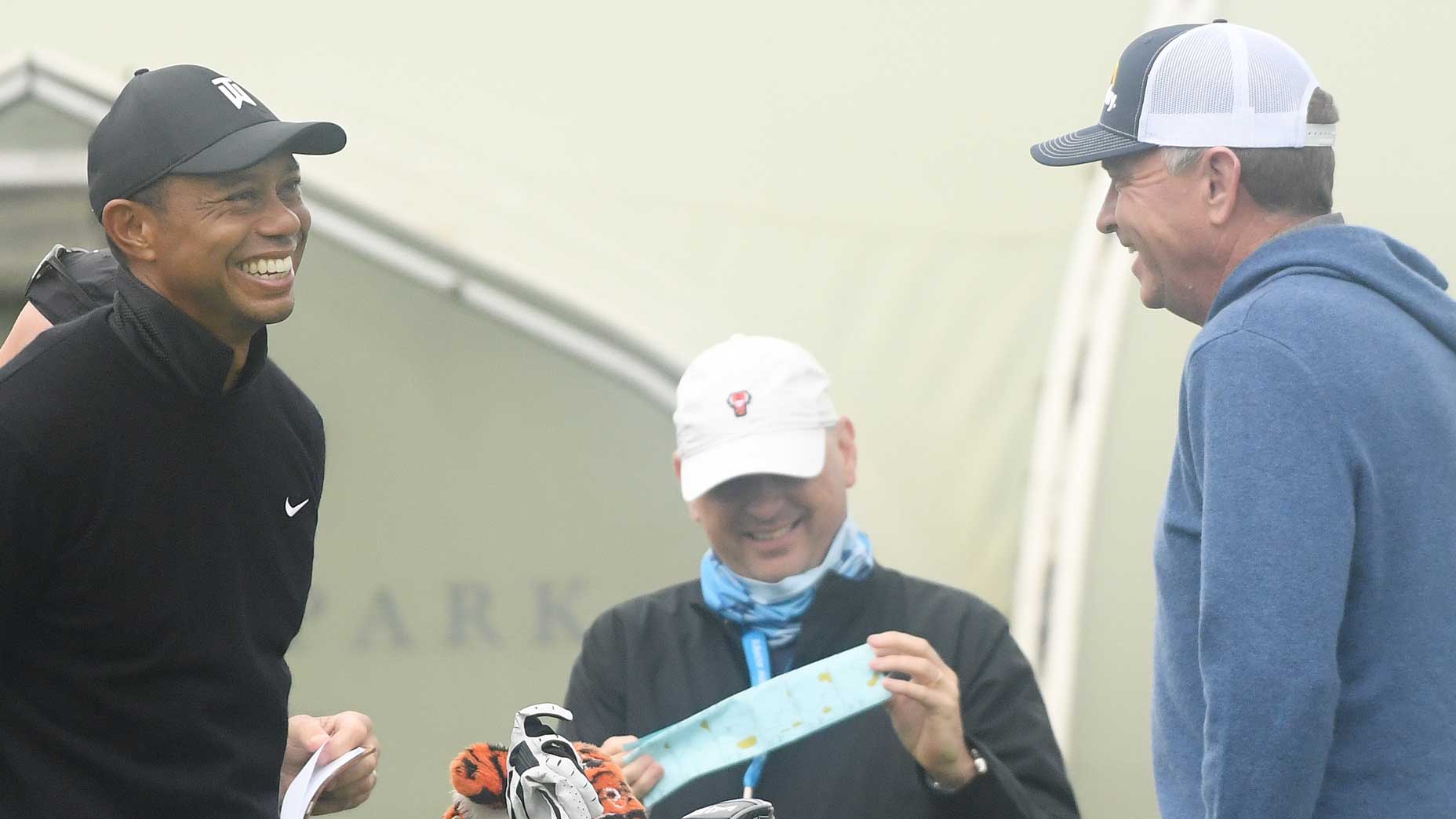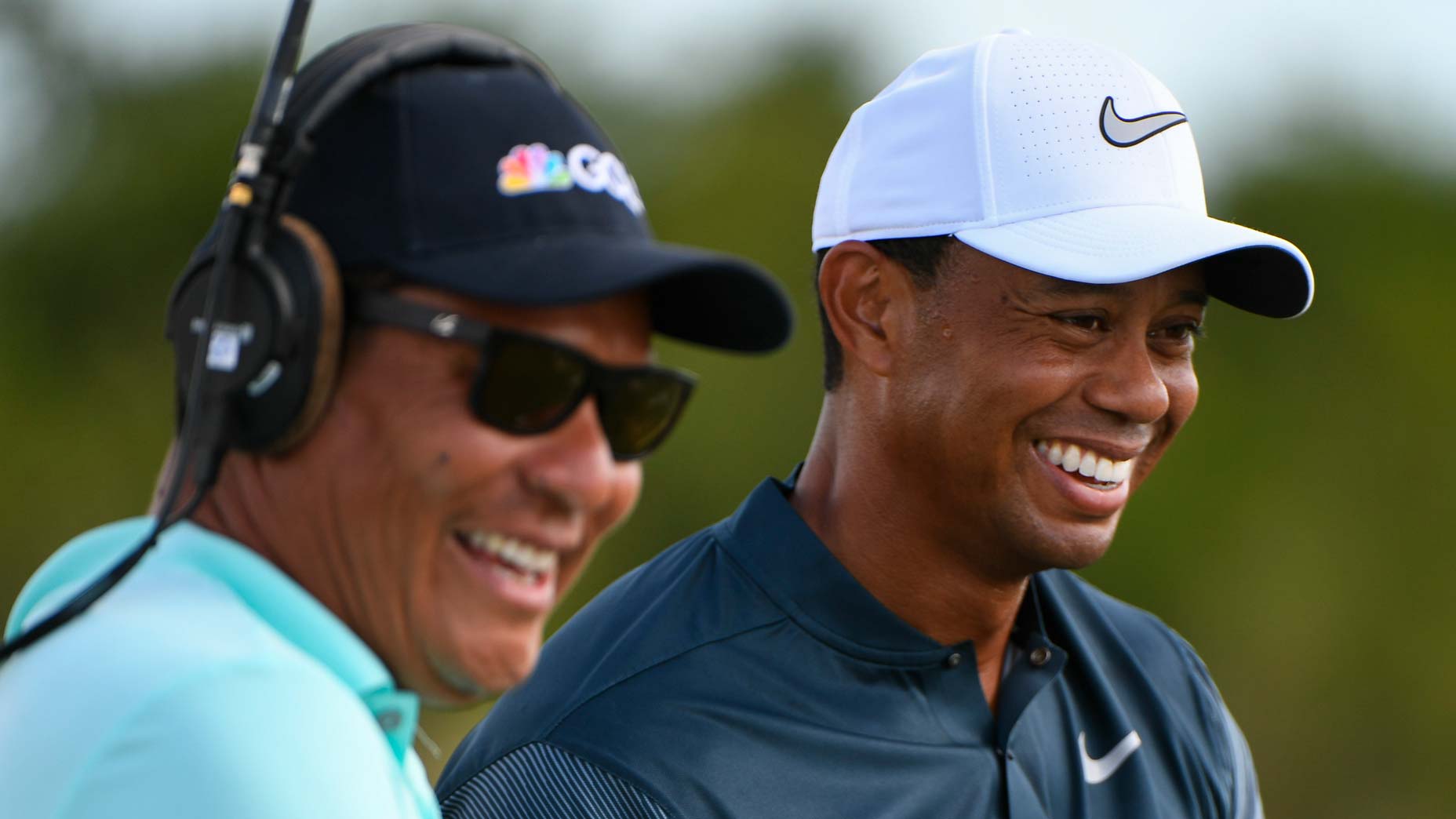The chief of our Great Northwest bureau, Dylan Dethier, identified and interpreted 10 interesting statements by the golfer Tiger Woods in the latter’s Tuesday press conference, in advance of the Zozo Championship, which begins Thursday and concludes on Sunday, at Sherwood Country Club, south of the 101 in greater Los Angeles. Following Dylan’s lead, I would like to use my allotted time to drill into Woods’s use of a single two-letter word he used repeatedly in his remote press conference: We.
For instance, in his opening remarks, Woods said this: “First off, the fact that we’re able to have this championship, it was a big thing for the Tour and a big bonus for all of us.”
We’re able to have this championship. Big bonus for all of us.
This is not Jordan Spieth’s we, by which the great Texan includes his “team” in his accomplishments — his caddie and coach and parents and sponsors — despite the solitary nature of the sport he plays.
How to interpret Phil Mickelson’s senior moment, plus 7 other Mickelson musingsBy: Michael Bamberger
What Woods did — what he’s been doing for the past two or three years — is establishing himself as a member of the community of golfers. That was not something he always did.
It was, by the way, something Arnold Palmer always did. Part of Arnold’s unique charm, and part of what explains his standing in golf throughout the world, is that he never put himself ahead of the game. Of course he had a colossal ego. But it was tempered by other things.
On Tuesday, Woods talked about how “we” — he and his touring brethren, in this instance — are not preparing for Augusta by way of the Florida swing, as they normally do. He talked about how “we” all have all manner of newish toys and tools to maximize driver carry distance. He talked about how he and Davis Love, at the 1998 Masters, were playing in earshot of Jack Nicklaus’s great roars. “We knew it was Jack behind us,” he said. “Those were Nicklaus roars.”
We, we, we, we, we.
Tiger’s use of we reminded me of his plain, moving remarks last year at the Golf Writers Association of America dinner — hundreds of people at round tables, shoulder-to-shoulder — on the night before the first round of the Masters. Woods was there to receive the Ben Hogan Award, as the comeback player of the year, honored for what he did in 2018, when he won on Tour for the first time in five years. He said, “To all the [award] recipients here, for all the work you have done — either serving the game, participating in the game, growing the game of golf — I say congratulations to all of you.
How a rules-bound golf league united a band of ink-stained newspaper writersBy: Michael Bamberger
“And to all the golf writers who voted for me to be a part of this: Thank you for all the hard work and the dedication that you have all shown over the years. Promoting the game. Growing the game of golf. We are so thankful to have all of you in here.”
We are so thankful. The community of golfers.
He could of course not known then that four days later he’d be in Butler Cabin as the winner of the 2019 Masters, and that later in the year he would win his 82nd PGA Tour title, the Zozo Championship in Japan, thereby matching Sam Snead’s record win total. If Woods wins this week, the record is his alone, as it should be.
But what was so striking and moving about Woods’s remarks that night in a banquet hall on the outskirts of Augusta was how selfless they were, how he was putting himself in the community of golfers, alongside literally millions of us.
Tiger is an accomplished actor. But I don’t believe for a second he was doing any acting that night.
You can count on Karen Crouse of The New York Times to ask interesting questions and on Tuesday she came through again. She asked Woods, “How do you think we should look at Augusta National’s Old South roots in the context of the racial awakening and reckoning that our country’s going through right now?”
Tiger did not pause. He seldom does.
“I think Augusta’s just like any other part of the world,” Woods said. “It has changed. It has evolved. Yes, it has had some roots that I don’t think that everyone’s very proud of. But it has evolved. We have minority members now. It’s more diverse. And just like anything, it evolves.”
We have minority members now.
Here’s a Patrick Reed story you probably haven’t read or heardBy: Michael Bamberger
That’s the most striking use of we I have ever heard from Tiger Woods.
If he were the chairman of Augusta National, he might be expected to use we there. If he were a dues-paying member of Augusta National, he would never speak publicly about the club but in private he might say, “The club has minority members now.” As a former winner (with five wins in all), he’s a member of the club within the club, the club of former winners. He integrated that club single-handedly. He wasn’t speaking as a member of the Masters Club.
We have minority members now. We.
It’s a way of saying that we’re all in this — this thing called golf and this thing called progress — together. That Augusta National, despite its private nature, is an elemental part of the game. That any of us, just by virtue of being golf fans, can claim some stake to the club and its annual invitational. After all, what is the Masters without Tiger Woods and Jason Kokrak and Bob Goalby and all of us?
To Tiger Woods (doing some always-dangerous mind-reading here) anybody or anything that helps grow the game and spread the word falls under the category of We. Part of Team Golf. Augusta National? Yes. The Patch, beloved Augusta muni in Augusta? Yes. Arnold Palmer? Yes. On the Beach, the Myrtle Beach golf magazine? Yes.
Woods said in that Tuesday press conference that “everything evolves.” Everything and everybody. We all evolve, and we all know that. But a tip of the hat to him, for the useful reminder.
Michael Bamberger welcomes your comments at Michael_Bamberger@GOLF.com.


